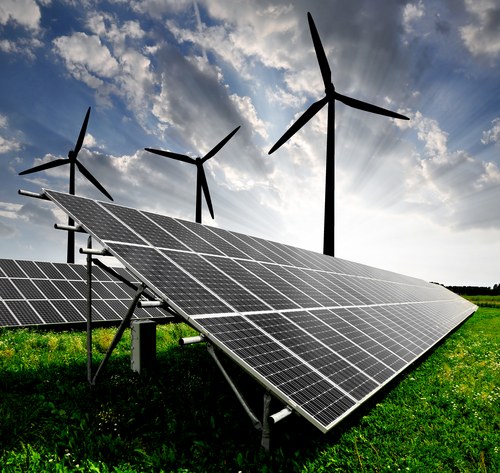India is dependent on imports of certain agricultural products
The most frequently imported agricultural products into India are vegetable oils, pulses, fresh fruit, raw cashew nuts, raw sugar, raw cotton and spices. Together, the value of these goods accounts for almost 84 percent of all agricultural imports. Since, according to the relevant ministries, vegetable oils account for the largest share of imports, a program called the “National Mission for Oilseeds and Oil Palm” was introduced. Increasing the volume of production and the yield and productivity of crops are the top priorities to reduce India’s dependence on imports of agricultural products.

Numerous government support programs have already been set up for the individual categories of oilseeds, cereals, pulses, fruits and spices. These aim, among other things, at security of food supply (National Food Security Mission, NFSM), NFSM especially for oilseeds and oil palm, Green Revolution for the East of India (BGREI), research in commercial horticulture and improvement of soil quality and health. In addition to government initiatives, the Indian Council of Agricultural Research (ICAR) and public universities in the field of agriculture have started a number of projects to improve varieties and hybrid breeding to increase production and productivity. The NFSM oil crop and oil palm support program provides direct support to farmers. Concrete assistance includes distribution of certified seeds and seedlings, demonstrations, integrated pest management and control, pesticides, agricultural machinery, farmer training, irrigation equipment and local initiatives to promote the cultivation of oilseeds. FSSAI certification is required for all agricultural and food products offered on the Indian market. We would be happy to advise you on the procedure for an India certification and carry it out for you. Contact us for a free consultation without any obligation.
If you have questions about FSSAI certification or any other product certifications for the Indian market (BIS certification, PESO, TEC, WPC certification) please do not hesitate to contact us by email or phone at +49-69-271 37 69 261. There is no cost or obligation for us to check for you. If a certification need is discovered we can provide a quotation to make sure that all your certification needs are covered.
If you have any questions you can also use our chat-window in the bottom right. (Please check your browser settings if you can’t see the window)
For more information about BIS certification, please refer to our free brochure “BIS Certification Made Easy“.
India hosts research summit for solar technology
The World Solar Technology Summit (WSTS) was organized by the International Solar Alliance (ISA) and the Federation of Indian Chambers of Commerce and Industry (FICCI) and took place in September 2020 as a virtual conference focusing on India. During the conference, stakeholders from research, industry, business and politics discussed the current status of solar technology and how to expand its application in the future. In his opening speech, India’s Prime Minister Modi repeated that five years ago, the world community agreed to slow down global warming by reducing dependence on fossil fuels. India has largely implemented this declaration of intent and has the lowest CO2 emissions per capita in the world. Nevertheless, Modi continued, the expansion of renewable energies will be pushed forward.

Over the past five years, India has increased its renewable energy capacity by a factor of 2.5 and solar energy capacity by a factor of 13. On a global scale, India ranks fourth in the production of renewable energy. 35 percent or 134 gigawatts of India’s total energy needs are generated from renewable energy. The government plans to increase the amount to 220 gigawatts by 2022. Decentralized energy supply in particular is expected to play a role in the future. To this end, the Indian government has introduced a support program called “KUSUM”. Within the framework of the project, around 2.8 million water pumps in agriculture and in rural areas are to be converted from diesel engines to solar power.
The co-organizer of the virtual summit, the International Solar Alliance (ISA), is an international organization for intergovernmental cooperation in solar technology. The ISA was founded by India and France in the presence of the UN Secretary General during the Paris Climate Change Conference in 2015. The main goal of the organization is to generate 1000 gigawatts from sunlight and to facilitate investments of over 1000 billion US dollars in solar energy by 2030. As of June 26, 2020, the ISA’s declaration of intent was signed by 86 countries. The headquarters of ISA is located in Gurugram in the Indian state of Haryana. In India, solar photovoltaic systems, equipment and components are subject to BIS certification. BIS certification is comparable to CE certification but with some important differences.
Since 2012, the BIS (Bureau of Indian Standards) has been gradually expanding the certification catalog and continuously adding additional goods. BIS certification mandatory for many electronic products for industrial and consumer uses. Factory inspections are also required for some products.
If you are interested in understanding what requirements are needed for your product to be imported into India, please do not hesitate to contact us by email or phone at +49-69-271 37 69 261. There is no cost or obligation for us to check for you. If a certification need is discovered we can provide a quotation to make sure that all your certification needs are covered.
If you have any questions you can also use our chat-window in the bottom right. (Please check your browser settings if you can’t see the window)
For more information about BIS certification, please refer to our free brochure “BIS Certification Made Easy“.
India founds space agency INSPACe to promote investment from industry
Recently, the government established the Indian National Space, Promotion & Authorization Centre (INSPACe) to promote and coordinate private and industrial investment in space. The new coordination center operates under the umbrella of the Ministry of Space. Companies and institutions that are participants in an INSPACe project can use the existing infrastructure of the Indian Space Research Organization (ISRO). The proposal to establish a new space center was put to the government by scientific circles and the recent decision was welcomed accordingly.
ISRO’s former private subsidiary, New Space India Limited (NSIL), has been incorporated into the new center. Its tasks include the construction of launch vehicles and payload transport, the construction of satellites, space services and technology transfer. Currently, more than 500 private companies in the fields of materials research, electronic and mechanical components as well as system development and integration are working with ISRO. The responsible Minister of Space Affairs assured the companies involved in INSPACe that they would be able to use government research facilities specializing in aerospace, which are only available in India in a few cases, for an appropriate fee.
The Indian Space Research Organisation (ISRO) has an annual budget of 1.9 billion US dollars and employs around 17,000 people. It has successfully launched 319 satellites from 33 countries into space, launched 117 space missions and carried out 77 launch trials for testing purposes. ISRO operates two space centers for the launch of rockets, a third one is planned. Since 2005, MPR International GmbH has been supporting companies worldwide with certifications for the Asian market. We currently offer these for India, China, Taiwan and South Korea. Indian certifications such as AIS (ARAI), BIS, WPC, TEC or PESO are part of our service portfolio. We offer certification services for all product areas. We have developed particular expertise in the automotive, medical technology, electrical, mechanical engineering, telecommunications and IT sectors. Our experienced international team will be happy to answer your questions about Indian certifications and is available to you at any time.
If you are interested in understanding what requirements are needed for your product to be imported into India, please do not hesitate to contact us by email or phone at +49-69-271 37 69 261. There is no cost or obligation for us to check for you. If a certification need is discovered we can provide a quotation to make sure that all your certification needs are covered.
If you have any questions you can also use our chat-window in the bottom right. (Please check your browser settings if you can’t see the window)
For more information about certifications, please refer to our free brochure downloads.
TEC has released new Security Requirements for Telecom Products
On October 13, 2020 the Department of Telecommunications in India has finally issued the long awaited regulations that were needed for the TEC certification of telecommunications equipment, which has been mandatory since 2019: The “Communication Security Certification Scheme” describes the requirements for telecommunications equipment, while the “Procedure For Security Certification Of Telecommunication Equipment” regulates the certification process.
One of the key take aways from these new regulations is that from now on, some products listed within the TEC certification must be tested in India by the Telecom Security Testing Laboratory (TSTL). This currently includes IP routers, Mobility Management Entity (MME), cryptographic controls, and Wi-Fi CPEs. In the future, mobile devices, connectable (U)ICC, E-Node B and P-Gateways could be added.
Testing and certification are mainly aimed at the software. This means that changes to it require registration. Small changes can be registered on a temporary certificate, which must be converted into a full certificate after one year at the latest by means of renewed testing. However, if the software change affects security aspects, it must be retested and certified immediately.
TEC certification has been around many years before 2019 as a voluntary certification, but since April 2019 the certification has been mandatory and every year the Telecommunication Engineering Center (TEC) expands the certification catalog and adds more telecom products. Until now, only a few products have actually been certified, but with this new standard, the TEC can now officially begin its certification work.
If you are interested in understanding what requirements are needed for your product to be imported into India, please do not hesitate to contact us by email or phone at +49-69-271 37 69 261. There is no cost or obligation for us to check for you. If a certification need is discovered we can provide a quotation to make sure that all your certification needs are covered.
For more information about TEC certification, please refer to our free brochure “TEC Certification Made Easy“.



